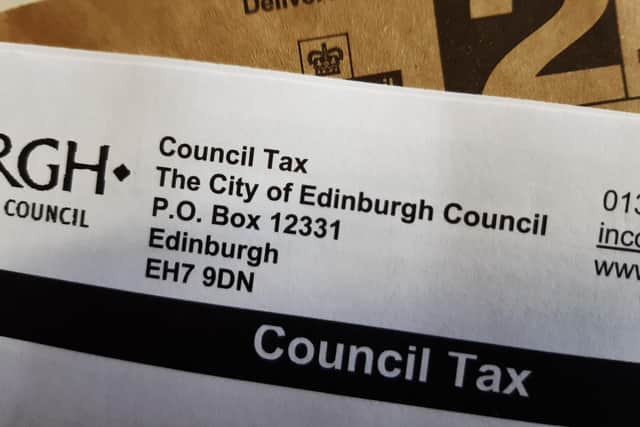Will anyone ever grasp the nettle and replace council tax?
and live on Freeview channel 276
Let us know what you think and join the conversation at the bottom of this article.
At least the council tax increase in Edinburgh – and most places in Scotland – is just three per cent, below the current rate of inflation, but it will still be an extra burden for many at a time when every penny counts.
And council tax has long been criticised because it hits lower-income families hardest. It was introduced by Tory prime minister John Major nearly 30 years ago to replace Margaret Thatcher’s hated poll tax which was even harsher on the poor, imposing the same flat-rate charge on everyone regardless of property, wealth or income.
Advertisement
Hide AdAdvertisement
Hide AdWhen the SNP came to power in 2007 they were pledged to abolish the council tax but that has never happened. Instead there was a long-running freeze on council tax rates and then an adjustment to the bands so those in more expensive properties pay a higher proportion.
But the tax is still seen as unsatisfactory and at last year's Holyrood elections the SNP promised to set up a citizen's assembly to discuss what should be done, although public finance minister Tom Arthur recently acknowledged no change was likely to take place until after the next elections in 2026.
Plenty ideas have been put forward. When Scotland had a Labour-Lib Dem coalition in charge, an independent review headed by former Bank of Scotland chief Sir Peter Burt proposed a tax based on around one per cent of a property's value. But the plan was quickly rejected.
In 2015 a cross-party commission which the Scottish Government set up along with local government body Cosla looked at three alternatives – a replacement property tax, a land tax and a local income tax. They stopped short of recommending any specific option but said some level of tax on property should be retained and also that local tax should be broadened to cover income.


Advertisement
Hide AdAdvertisement
Hide AdA citizens' assembly – which is intended to see if a consensus can be found – may be persuaded by some of these suggestions or prefer some other approach. But even if it manages to reach a common view on an alternative to the council tax, will that necessarily be taken forward? A report on Scotland's first citizens' assembly is not encouraging. It said the assembly had been given a vague mandate, little planning had been done on what to do with its recommendations and politicians thought their conclusions were unlikely to have much influence on the parliament.
There's a big problem with trying to reform local taxation: whatever new system you come up with inevitably creates winners and losers and politicians fear the backlash from the losers. Even a property revaluation to reflect up-to-date prices carries the same risk.
So until someone has the courage to grasp the nettle, we will be left with a tax first introduced in 1993, which is still based on 1991 house values and which no-one believes to be the right system.
A message from the Editor:
Thank you for reading this article. We're more reliant on your support than ever as the shift in consumer habits brought about by coronavirus impacts our advertisers.
If you haven't already, please consider supporting our trusted, fact-checked journalism by taking out a digital subscription.
Comment Guidelines
National World encourages reader discussion on our stories. User feedback, insights and back-and-forth exchanges add a rich layer of context to reporting. Please review our Community Guidelines before commenting.
